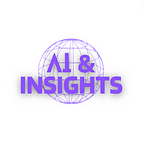AI-Driven Healthcare:
The Promise and Challenges of Integrating GPT-4.0 in Patient Care
In the rapidly evolving landscape of healthcare, AI technologies like GPT-4.0 hold immense promise for transforming patient care, diagnosis, and treatment. By leveraging its natural language processing capabilities and vast knowledge base, GPT-4.0 offers new opportunities to enhance clinical decision-making, improve patient outcomes, and drive operational efficiency. However, the integration of AI in healthcare also presents significant challenges related to data privacy, regulatory compliance, and ethical considerations. This exploration delves into the promise and challenges of integrating GPT-4.0 in patient care, highlighting its potential benefits and key considerations for implementation.
- Clinical Decision Support Systems: GPT-4.0 powers clinical decision support systems that assist healthcare professionals in diagnosing diseases, interpreting medical images, and formulating treatment plans. By analyzing patient data, medical literature, and best practices, GPT-4.0 can provide evidence-based recommendations, differential diagnoses, and treatment options. This enhances the accuracy and efficiency of clinical decision-making, leading to better patient outcomes.
- Natural Language Understanding in Electronic Health Records: GPT-4.0 facilitates natural language understanding in electronic health records (EHRs) by extracting insights from unstructured clinical notes, physician documentation, and patient histories. It can analyze textual data to identify patterns, trends, and correlations relevant to patient care. By processing vast amounts of clinical information, GPT-4.0 enables healthcare providers to access critical information quickly, make informed decisions, and deliver personalized care.
- Patient Engagement and Education: GPT-4.0 enhances patient engagement and education by generating personalized health information, educational materials, and treatment plans tailored to individual patient needs. It can interpret patient queries, provide answers to medical questions, and offer guidance on managing chronic conditions or medication adherence. By empowering patients with knowledge and resources, GPT-4.0 promotes active participation in their healthcare journey and improves health outcomes.
- Diagnostic Support and Imaging Analysis: GPT-4.0 supports diagnostic imaging analysis by interpreting medical images, such as X-rays, MRIs, and CT scans, and assisting radiologists in identifying abnormalities or lesions. It can analyze imaging data to detect subtle patterns, anomalies, or indicators of disease, helping healthcare providers make accurate diagnoses and treatment recommendations. This AI-driven approach enhances diagnostic accuracy, reduces interpretation errors, and accelerates patient triage and care.
- Ethical Considerations and Regulatory Compliance: The integration of GPT-4.0 in patient care raises ethical considerations and regulatory compliance issues related to data privacy, patient consent, and algorithmic transparency. Healthcare organizations must ensure that patient data is protected, encrypted, and compliant with privacy regulations such as HIPAA. Additionally, transparency and explainability of AI algorithms are essential to build trust among healthcare professionals and patients.
- Bias and Fairness in AI Algorithms: GPT-4.0, like other AI models, may exhibit biases inherent in the training data, potentially leading to disparities in healthcare outcomes. Healthcare organizations must mitigate bias in AI algorithms by using diverse and representative datasets, implementing bias detection tools, and continuously monitoring algorithm performance. Ensuring fairness and equity in AI-driven healthcare is crucial to promoting trust, transparency, and patient safety.
- Integration with Clinical Workflows and Physician Adoption: Successful integration of GPT-4.0 in patient care requires seamless interoperability with existing clinical workflows and systems, such as EHRs, laboratory information systems, and telemedicine platforms. Healthcare providers need user-friendly interfaces and intuitive tools that integrate AI-driven insights into their daily practice without disrupting workflow efficiency. Physician training, education, and engagement are essential to foster adoption and acceptance of AI technologies in healthcare.
GPT-4.0 holds great promise for revolutionizing patient care in healthcare through clinical decision support, natural language understanding, diagnostic imaging analysis, and patient engagement. However, the integration of AI in healthcare presents significant challenges related to ethical considerations, regulatory compliance, bias mitigation, and physician adoption. By addressing these challenges and leveraging the potential of GPT-4.0 responsibly, healthcare organizations can harness the power of AI to improve patient outcomes, enhance clinical workflows, and advance the practice of medicine.
